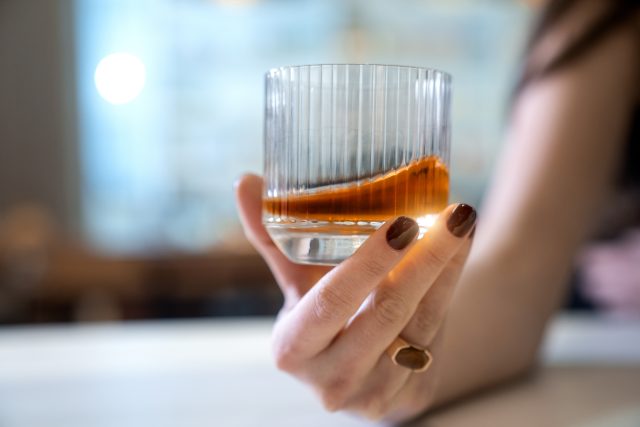70% of women in whisky have suffered harassment at work, survey finds
A third of women working in whisky have been inappropriately touched and 87% feel they experience more challenges in the workplace than their male counterparts, according to a survey by OurWhisky Foundation.

OurWhisky Foundation, a non-profit organisation dedicated to supporting women in whisky, undertook a survey of over 600 professional women in the global whisky industry to investigate the extent of sexism and bias in the sector.
The survey – ‘Do You Even Like Whisky? The Barriers Holding Back Women in the Industry’ – was conducted in July 2023 by women representing a variety of countries and job roles, OurWhisky Foundation has said.
It revealed that sexism and harassment are rife within the industry. 70% of all respondents reported experiencing inappropriate or sexual remarks while doing their job. A third (33%) said they have been inappropriately touched at work. This figure rose to 44% among those working in consumer-facing roles, including brand ambassadors and retail and hospitality workers.
The problem is also not a historic one. More than a quarter (27%) of consumer-facing women who have been working in the industry for less than five years reported being inappropriately touched.
To put these figures into context, data collected by the Trades Union Congress (TUC), the UK’s national trade union centre, shows that over 1 in 2 women and nearly 7 out of 10 LGBT workers have been sexually harassed in the workplace. Half of those women who had experienced sexual harassment said that they had been subjected to unwelcome sexual jokes in the workplace more than six times in their lives.
The types of sexual harassment reported to the TUC range from inappropriate and offensive comments or ‘jokes’ of a sexual nature to unwanted touching, sexual assault and rape. 32% of women have been subject to unwelcome jokes of a sexual nature and more than one in ten women reported experiencing unwanted sexual touching or attempts to kiss them in the workplace. One in eight LGBT women reported being seriously sexually assaulted or raped at work.
A man’s drink
Becky Paskin, founder of the OurWhisky Foundation, said that the survey revealed that “being spoken over, having your knowledge questioned or being asked if you actually like whisky are common occurrences for women working in whisky”.
Indeed, more than 80% of female respondents making, selling and promoting whisky reported being asked by both colleagues and consumers if they even like the spirit, while 89% believe that consumers still widely perceive whisky to be a man’s drink.
Two-thirds of survey respondents said the masculine reputation of whisky makes their jobs more challenging, and just 16% felt that the industry was doing enough to change that perception.
They cited the top three most significant challenges facing women in the industry as unconscious bias (84%), stereotyping (76%) and a lack of representation (54%), and 87% felt that they experience more challenges in the workplace than their male counterparts.
Partner Content
Paskin added: “These are surface-level yet widespread examples of unconscious bias manifesting as micro-aggressions – the ongoing effect of decades of male-targeted advertising.”
When it came to whisky advertising and marketing, just 16% felt women were fairly represented, and only 10% agreed that women are fairly represented by the media.
“While the industry appears to be taking steps towards inclusion and better representation, this survey clearly shows women feel they aren’t supported enough,” Paskin said. “It’s important to realise that while it’s perhaps easy to shrug off a solo incident, these micro-aggressions build up over time to have a devastating impact on the women in our industry.
“The escalation of these attitudes into inappropriate verbal and physical behaviour cannot be ignored. The industry needs to take this issue extremely seriously.”
Four in five (80% of) respondents said they work in consumer facing roles where they’re required to conduct tastings or tours, with 89% of those women saying they had been spoken over or had their knowledge questioned while conducting a tasting, while 83% have experienced customers preferring to talk to a male colleague.
Millie Milliken, head of content and the develop programmes at the OurWhisky Foundation, said: “The results of this survey dispel any argument that there isn’t a sexism issue in our industry. While ‘it’s not as bad as it used to be’ – an argument often used to dismiss the issue – these issues are very real for women working in whisky right now and there is still a lot of work to be done by businesses to make working in the industry safer for their female employees.”
The foundation has outlined some key areas businesses can focus on to tackle sexism in the industry. These are:
Improving representation of women in advertising and marketing, while avoiding stereotyping
Implementing unconscious bias and diversity, equity and inclusion (DEI) training for all staff, including senior leadership teams
Implementing bystander training and clear anti-harassment policies
Conducting a company pay audit and encourage pay transparency to ensure fair and equal pay
Allowing flexible working hours and locations for all parents, not just women
The OurWhisky Foundation plans to conduct further research into the problems facing women in the industry.
In other news, Curious Vines and Proof Insight have collaborated on the first survey looking into how women feel about working in the UK wine sector, and industry professionals have until 31 August to take part. Click here to find out more.
Related news




